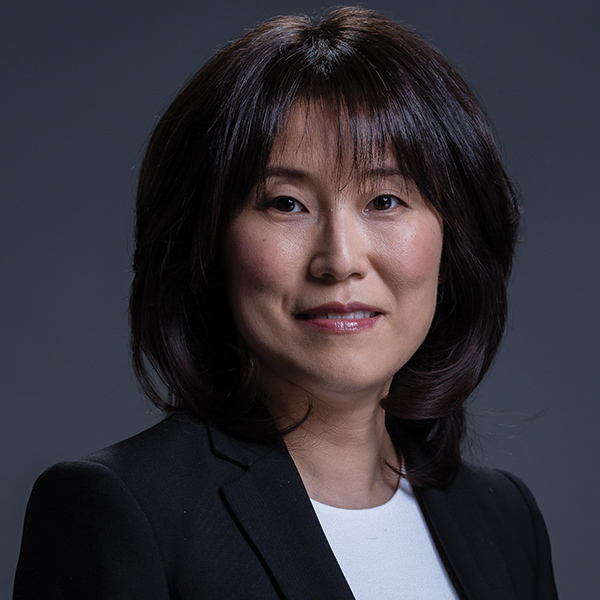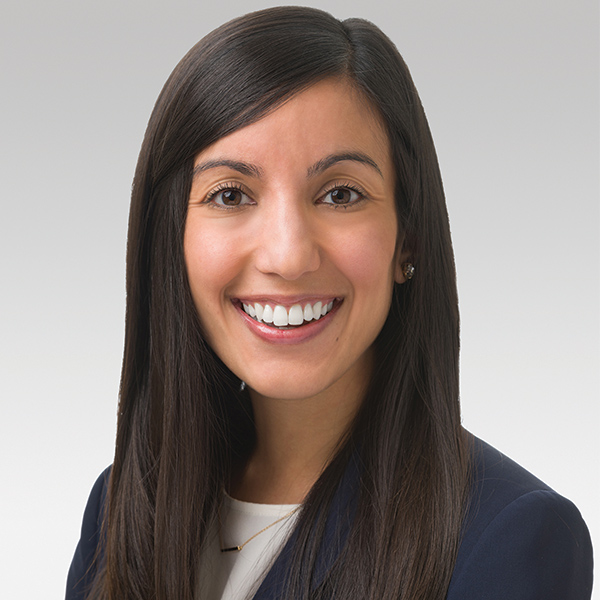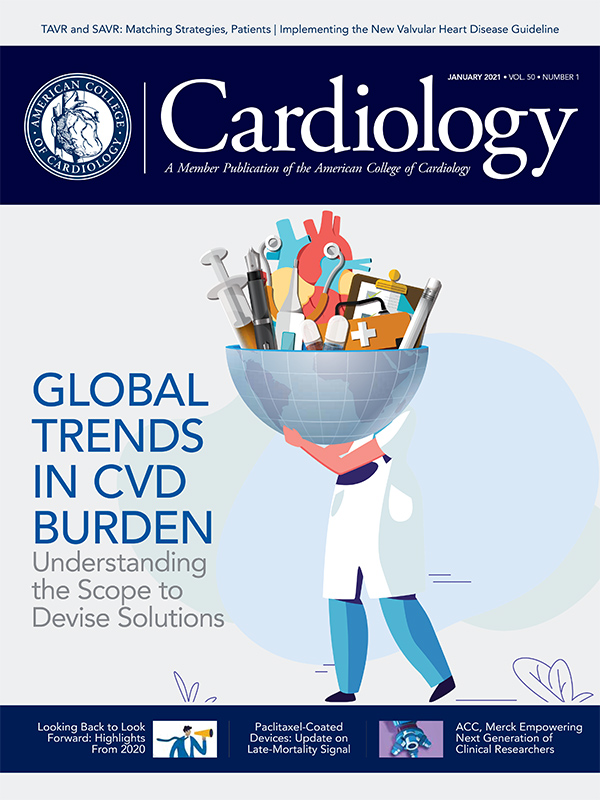Feature | Where Are They Now: Conversations With the 2020 ACC/Merck Fellowship Awardees

For the last four decades, the ACC and Merck have partnered together to provide research fellowships to nearly 200 cardiovascular clinicians in the early stages of their careers.
These fellowships have stimulated and encouraged young scientists to pursue careers in research – many of whom have gone on to play leading roles in both their institutions and the ACC.
Cardiology recently caught up with the 2020 ACC/Merck awardees – Darae Ko, MD, MSc, and Priya M. Freaney, MD – to talk about their research, highlights to date, next steps and advice to other Fellows in Training and Early Career clinicians.
Read their interviews below and see the sidebar below for more information on the 2021 Merck Fellowships (the application deadline is Jan. 29) and save the date for ACC.21 in May where the newest awardees will be celebrated as part of Convocation.

Darae Ko, MD, MSc
Assistant Professor in Medicine
Boston University
Research and Highlights to Date
My research project has focused on risk-guided atrial fibrillation (AFib) surveillance in ischemic stroke with the goal of establishing current national practice patterns in the use of implantable loop recorder (ILR) after ischemic stroke for AFib surveillance.
I hypothesize that the practice patterns are highly variable, and this variability is mostly driven by patients' insurance status, physician subspecialty, and hospital characteristics rather than patient comorbidities.
The findings from the project will benchmark post stroke ILR use and estimate the magnitude of the potential opportunity to optimize ILR use for post stroke AFib detection.
Since the start of the ACC/Merck fellowship in July 2020, I published a paper as a second co-author in the journal Stroke investigating the feasibility of using data from electronic health records to phenotype cardioembolic stroke.
Perhaps the most exciting news from my end is that I found out recently my NHLBI K23 application received a fundable score.
Key Takeaways From the ACC/Merck Fellowship Experience
The biggest challenge for me during the ACC/Merck fellowship was learning how to transition from fellow to faculty. There was a lot of grant writing to secure a faculty position with protected research time.
The most important takeaway from this arduous experience is that as an early-career investigator, I could not have done my research without my mentors who believed in me and who wanted to help me.
Emelia Benjamin, MD, ScM (Cardiology, Boston University), Allan Walkey, MD, MSc (Pulmonary and Critical Care, Boston University), and Steven Lubitz, MD, MPH (Cardiology, Harvard Medical School) are my closest mentors who consider it their mission to support the next generation of scientists.
Next Steps and Advice For the Future
I will transition to my K23 award after the ACC/Merck Fellowship ends. The K23 award will allow me to further develop research expertise in AFib and anticoagulation and become an independent researcher.
My ultimate goal is to become an R01-funded investigator with a focus on identifying opportunities to improve health care delivery for AFib detection and treatment and developing effective strategies to prevent AFib-related complications.
I cannot emphasize enough the importance having a team of mentors. Mentors can make (or break) the careers of early-stage researchers.
If you surround yourself with people who believe in you and want to support you, and you work hard, you will maximize your chance of successfully transitioning to the next stage of your career.

Priya M. Freaney, MD
Cardiology Fellow
Northwestern University
Research and Highlights to Date
The overarching goal of my research is to better understand the role of adverse pregnancy outcomes in the future development of cardiovascular disease (CVD).
Adverse pregnancy outcomes include hypertensive disorders of pregnancy, low birthweight of babies, and preterm delivery. Specifically, we aim to understand the association between adverse pregnancy outcomes and subclinical CVD to be able to implement strategies to prevent overt CVD.
In addition to presenting our work demonstrating the association of pregnancies complicated by low birthweight deliveries with adverse maternal heart health (cardiac mechanics) at ACC.20/WCC, I also presented our work on trends and disparities in adverse pregnancy outcomes at the Northwestern Cardiology Young Investigator Forum national conference and received the 3rd place clinical fellow award. I have also co-authored several manuscripts in JAMA, Circulation: Heart Failure, American Journal of Medicine, and Current Atherosclerosis Reports in the past year.
Key Takeaways From the ACC/Merck Fellowship Experience
The COVID-19 pandemic has certainly introduced challenges during my ACC/Merck fellowship year. As with many other researchers around the world, in-person participant recruitment, data collection and networking opportunities are currently compromised.
Luckily, remote research and virtual connections have helped to fill this gap, though we eagerly await the safe return to in-person collaborations in the near future. In all, however, the ACC/Merck fellowship has been a phenomenal opportunity. It has been incredibly valuable to have a full year of protected research time during my cardiology fellowship to dedicate to advancing my clinical research career.
One simple but important message is that high-quality research takes time. I am so grateful to have the opportunity to receive dedicated training at Northwestern University Feinberg School of Medicine in the Department of Preventive Medicine to develop a strong foundation for a future career as a clinician scientist with the support of the ACC/Merck fellowship.
Next Steps and Advice For the Future
Following my ACC/Merck fellowship year, I plan to continue my research in women's cardiovascular disease prevention, obtain additional training in cardiovascular imaging, and ultimately aim to join or start a Women's Heart Health Center.
My goal is to have both clinical and research programs that identify barriers to transitions of care from peripartum obstetric care to postpartum cardiovascular care, screening pathways for premature CVD, and related mechanisms for novel therapeutic targets to improve cardiovascular outcomes in women who have experienced adverse pregnancy outcomes.
I strongly advise any cardiology fellow who is pursuing a career in clinical investigation to apply for the ACC/Merck fellowship. The process of putting together the application alone serves as an opportunity to articulate your vision for a research proposal, and the prestigious fellowship can then launch your career as an early investigator and serve as a bridge to independent funding.
Will You Be Next?
The ACC is excited to celebrate the 40th Anniversary of its partnership with Merck. In recognition of this milestone anniversary, ACC and Merck are offering three one-year fellowships totaling $100,000 each.
One of the fellowships will be awarded by the Association of Black Cardiologists (ABC) to a current ABC member pursuing research focusing on disparities of care.
Preference for all three awards will be given to individuals who have had no more than two years of prior full-time experience either in clinical or basic research.
Recipients will be expected to pursue a full-time project in clinical research during their year of supported training, beginning July 1, 2021 and ending June 30, 2022.
Awardees will be recognized during Convocation at ACC.21 in May.
All applications must be complete and submitted by Jan. 29. Click here for more information on eligibility, selection criteria and the submission process.
Clinical Topics: Acute Coronary Syndromes, Congenital Heart Disease and Pediatric Cardiology, Congenital Heart Disease
Keywords: ACC Publications, Cardiology Magazine, Heart Defects, Congenital, Acute Coronary Syndrome
< Back to Listings


